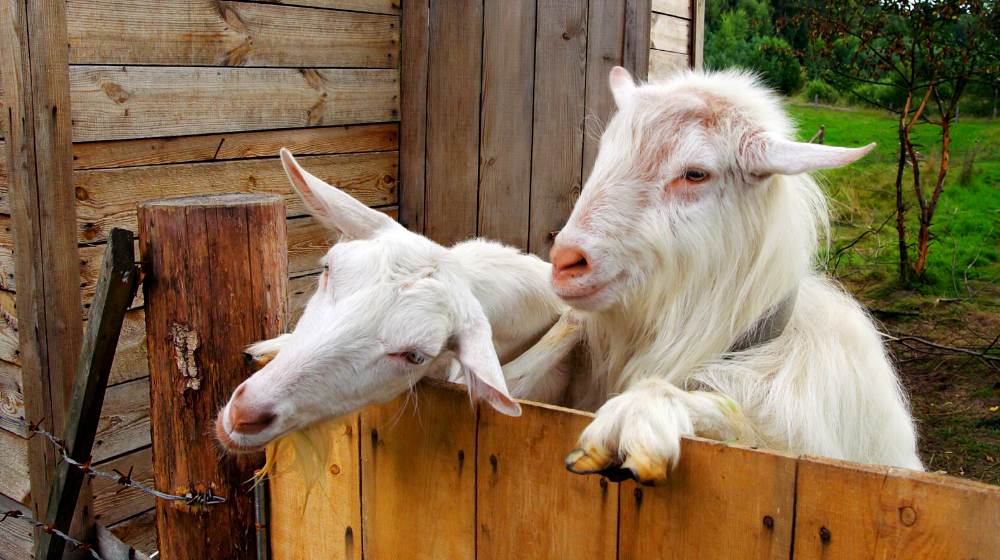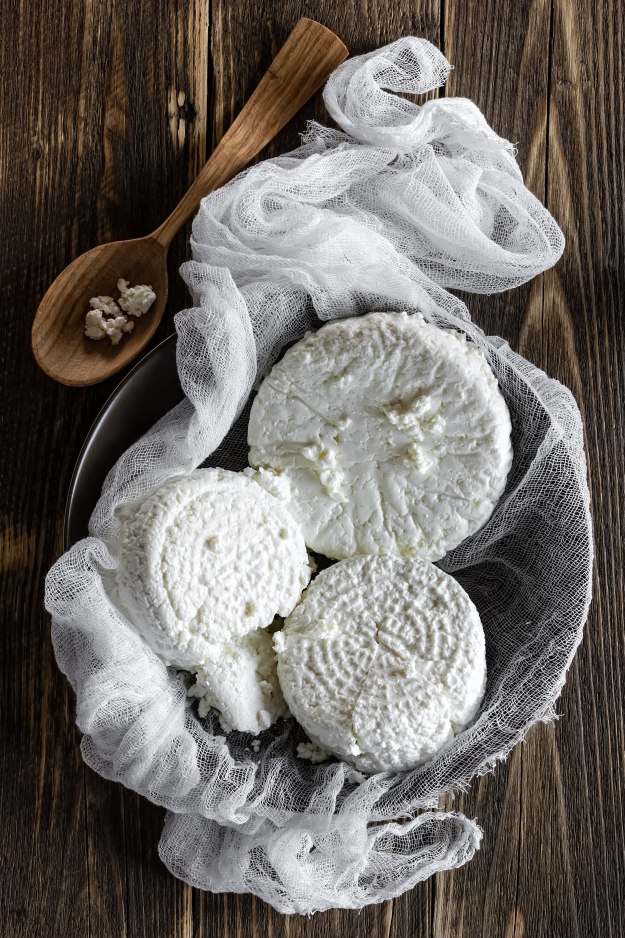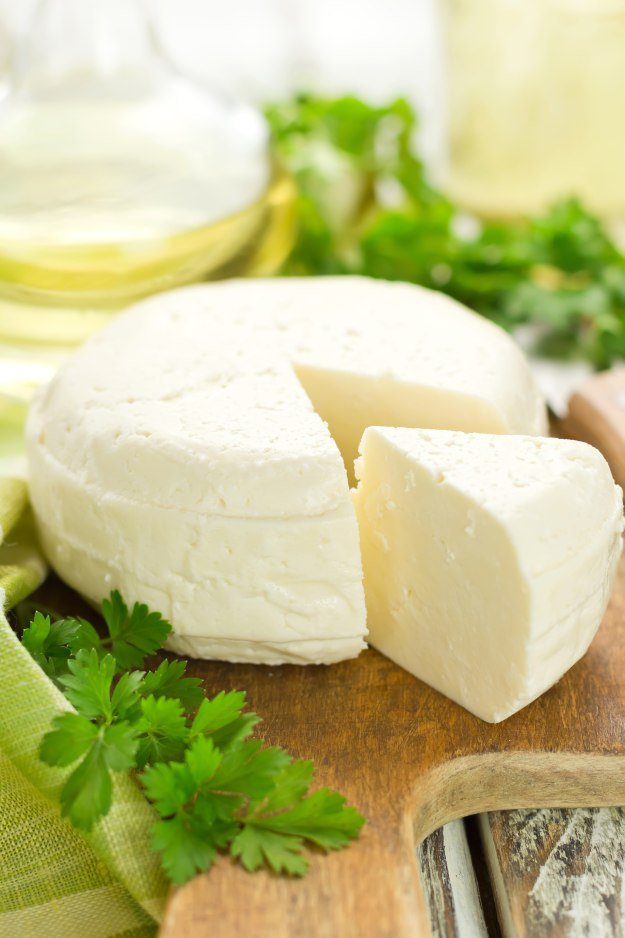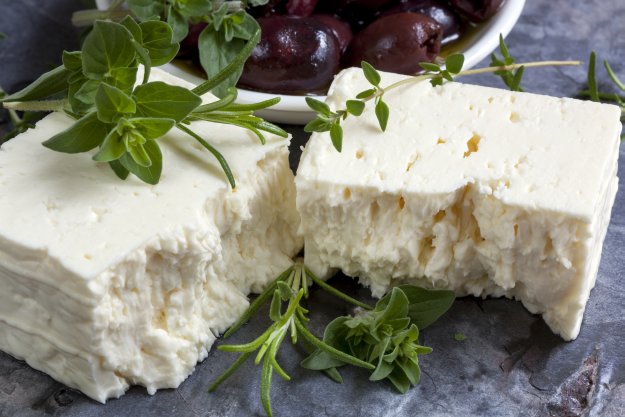A benefit of raising goats is you get to make goat cheese from all the fresh goat milk! Learn how to make goat cheese from dairy goats with this homesteading guide.
 You are reading Chapter 10 of our Homestead Handbook:
You are reading Chapter 10 of our Homestead Handbook:
Raising Backyard Goats
Chapter 10:
How to Make Goat Cheese
Nothing beats home cooking, especially when you can make meals from scratch. One of the benefits of owning goats is you get to milk it for fresh dairy every morning. And you can use this fresh dairy to make goat cheese! Goat cheese is the best cheese in the entire world (yes, I might be bias) but it really is delicious, and so easy to make. Give it a try!
Goat Milk 101:
There are a lot of recipes you can try out when you have your goats’ milk; experimenting is so fun! There are a lot of foods that uses some form of cheese or milk as an ingredient, and now you will have the freshest and most delicious supply at hand all the time. Chances are you are going to have more milk than you or your family can stomach so you will want to know how to preserve your milk for future purposes. It is nice to have milk during times you know there are times you will run out on it, such as at certain times during your goats’ pregnancy even if it is only a few days. You can freeze your milk (obviously thought of that right?) in jars, containers or any other items that are safe freezing. You may also can your milk although this is a controversial option as economists’ state canning milk home is not safe. Regardless of which side of the fence you are on if you want to try it, purchase a pressure canner, canning jars, lids, and rings. The pressure canner comes with instructions that will guide you step by step.
Goat Cheese Recipe
We recommend making cheese that is acid ripened as your first project. This one is simple because it does not require any special ingredients. You'll ripen it by adding an acid product such as vinegar, lemon or lime juice, or citric acid. Here is our recipe for Farmer's Cheese.
Farmer's Cheese
*2 quarts of milk
* ¼ cup vinegar, lemon juice, lime juice, or citric acid
- Warm up the milk to about 185 degrees or near boiling then move it away from the heat
- Add the vinegar, acid or juice of your picking while you keep the milk separated and covered for fifteen minutes. You will begin to see a film of curd forming separate from the greenish whey.
- Slowly ladle the curd in a colander and coat it with butter muslin. Alternatively you can pour the curd and whey in the colander, which it easier, but skimming yields a nicer texture and flavor.
- Knot the corners of the cloth together and hang the cheese somewhere it can drain a few hours, or the leaking stops.
- You can slice or cube the cheese for later or eat it as is although it is kind of tasteless that way. You can use this cheese to make lovely queso blanco.
NOTE: If you want to make ricotta, use fresh whey as the substitute for milk and heat it at around 200 degrees Fahrenheit. The whey is what was left over from making your other cheese. Talk about hitting two birds with one stone!

Queso Blanco:
- 1 Gallon of fresh goat milk
- ¼ cup white vinegar
This Mexican white cheese is slightly similar to vinegar cheese, but it is food that does not melt. It is nice stir fried in sun oil until it is a nice golden brown.
- Place the milk in a pot and warm it to about 190 degrees Fahrenheit and stir it often.
- Add the vinegar and stir until the curd and whey begin to separate.
- Ladle the curd in a colander that has been lined with butter muslin then hang it until the whey no longer drips. (there will be a greenish tint)
This cheese can be eaten after it no longer drains or chilled for a couple of hours to make it easier to cut. Try and eat it within a few days to retain optimal flavor, but you may store it up for a week.
Don’t toss the whey in the garbage, it is still of use! Whey is liquid filled with nutrition like proteins, vitamins and mineral. It can serve as the liquid needed in any bread recipe. It also gives a lift to while grains, and it is an excellent source for pigs, turkeys, and chicken. You can also use this sucker as a fertilizer in your garden or your pasture.

Feta Cheese
Feta cheese is a salty tasting cheese from Greece that you can serve crumbled on top of salads, pasta dishes or as pizza topping.
*2 gallons of goat milk
* one packet of direct-set mesophilic starter
* ¼ rennet tablet crushed and dissolved in ¼ cup cool water
- Warm up the milk until it reaches 80-85 degrees Fahrenheit and stir occasionally. Let it sit for 30 minutes, covered.
- Add rennet solution and continue to stir. Keep the temperature around 80-85 degrees Fahrenheit for an hour or until you see curd forming
- Slice the curds in ½ inch cubes, and let it sit there for ten minutes
- Stir cheese for about 20 minutes set at 86 degrees Fahrenheit
- Add curd into the colander and coat it with butter muslin. Knot the corners and hang it to dry for a few hours
- Untie the bag and dice them into 1-inch cubes. You can sprinkle them with salt for taste.

That was Chapter 10: How to Make Goat Cheese | Goat Cheese Recipes from our Homestead Handbook: Raising Goats
Click Here to Read The Next Chapter >>
<< Click Here to Go Back to the Table of Contents

I don’t see when I am supposed to add the starter